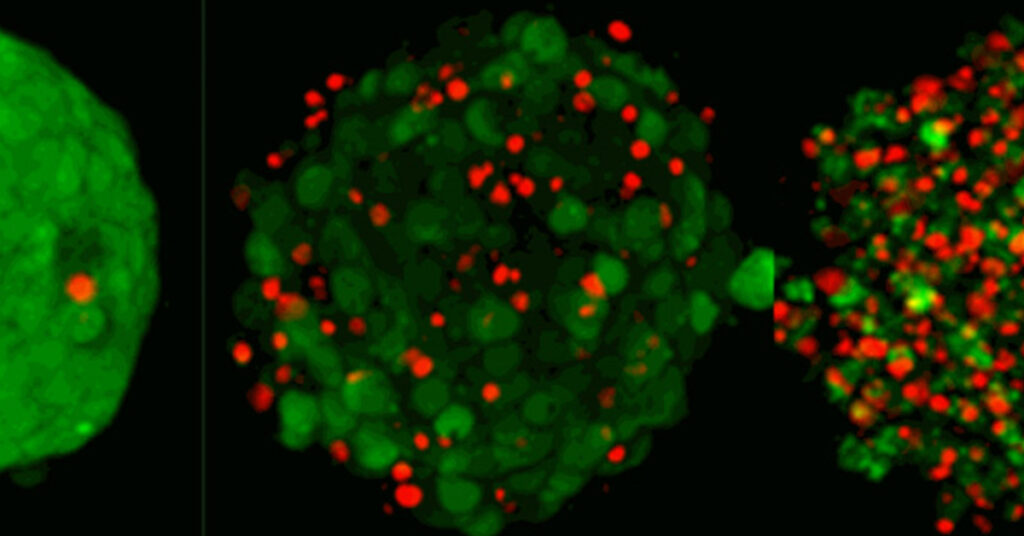- Research
Scope- Translational
Medicine- Transversal Translational Medicine (TTM)
- Translational Medicine Operations Hub (TMOH)
- Clinical Project Management Office (CPMO)
- Clinical and Epidemiological Investigation Center (CIEC)
- Luxembourg Clinical and Translational Research Centre (LCTR)
- Competence Centre for Methodology and Statistics (CCMS)
- Integrated Biobank of Luxembourg (IBBL)
- Disease Modeling & Screening Platform (DMSP)
- Luxgen Genome Center
- Research Pathology Platform (RPP)
- Research Projects & Clinical Trials
- Support Us
- Translational
News
Review on Parkinson’s disease: the link between microglia activation and DJ-1
Dysregulated immune pathways may be a potential therapeutic target for Parkinson’s disease patients.
24 April 2023
3minutes

A recent review article published by scientists from the Neuro-Immunology Group of the Department of Cancer Research at the Luxembourg Institute of Health sheds light on the role of immune dysfunction in the development of Parkinson’s disease (PD). The article provides a comprehensive overview of the existing literature on the topic and highlights the importance of the PARK7/DJ-1 gene in regulating microglia immune responses and neuroinflammation. The authors suggest that further research on the link between inflammatory pathways and neurodegeneration may help the development of new therapies for PD patients.
Parkinson’s disease is a debilitating neurodegenerative disorder that affects millions of people worldwide. It is characterized by the degeneration of dopaminergic neurons in the brain, leading to motor symptoms such as tremors, rigidity, and slowness of movement. While the exact causes of PD remain unknown, recent research has shown that dysregulated immune pathways and microglia activation may play a significant role in the disease.
“Microglia are the immune cells of the brain, which play critical roles in immune surveillance and neuroprotection in healthy conditions, but can sustain neuroinflammatory and neurotoxic processes in PD. Therefore, the identification of the latter are key to advance the development of therapeutic targets in PD patients” states Frida Lind-Holm Mogensen, a PhD student in the group and first author of the article.
Mutations in the PARK7 gene, which encodes the DJ-1 protein, have been linked to early-onset PD. DJ-1 has been shown to have neuroprotective functions and plays a crucial role in regulating microglia immune responses and neuroinflammation. Recent studies have found that dysregulated immune pathways, including oxidative pathways, may be potential therapeutic targets for PD patients.
In that vein, researchers have developed several compounds targeting DJ-1 that enhance its effects, and studies have shown that these can cross the blood-brain barrier and have potent neuroprotective effects. While these studies have only addressed the effects of these compounds on neurons, it is not yet known whether they can also modulate microglia and their interplay with neurons. Additionally, it is not yet known whether DJ-1 enhancers affect other oxidative pathways.
We need to understand the immune pathways that are involved in PD. We believe this will help pave the way towards the development of new drugs that promote neuroprotection and diminish microglia activation in PD patients,
states Dr Alessandro Michelucci, leader of the Neuro-Immunology Group and senior author of the publication.
The review concludes with the hope that future studies aimed at investigating the link between central nervous system inflammatory pathways and neurodegenerative processes may reveal molecular mechanisms that can be exploited to develop therapeutic targets for a larger group of PD patients.
The article was published on April 18 in the Journal of Neuroinflammation.
Funding and collaborations
Supported by the Luxembourg National Research Fund (FNR) through the FNR-PRIDE program i2TRON for doctoral education (PRIDE/14254520/I2TRON).







